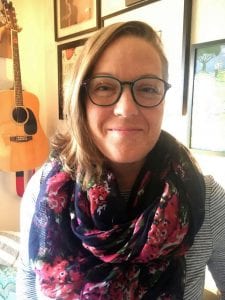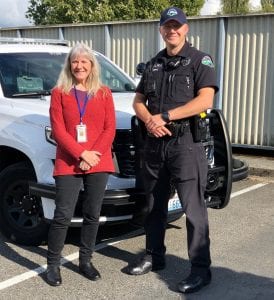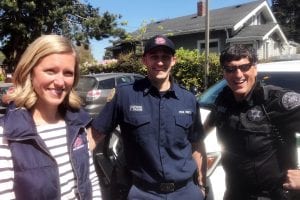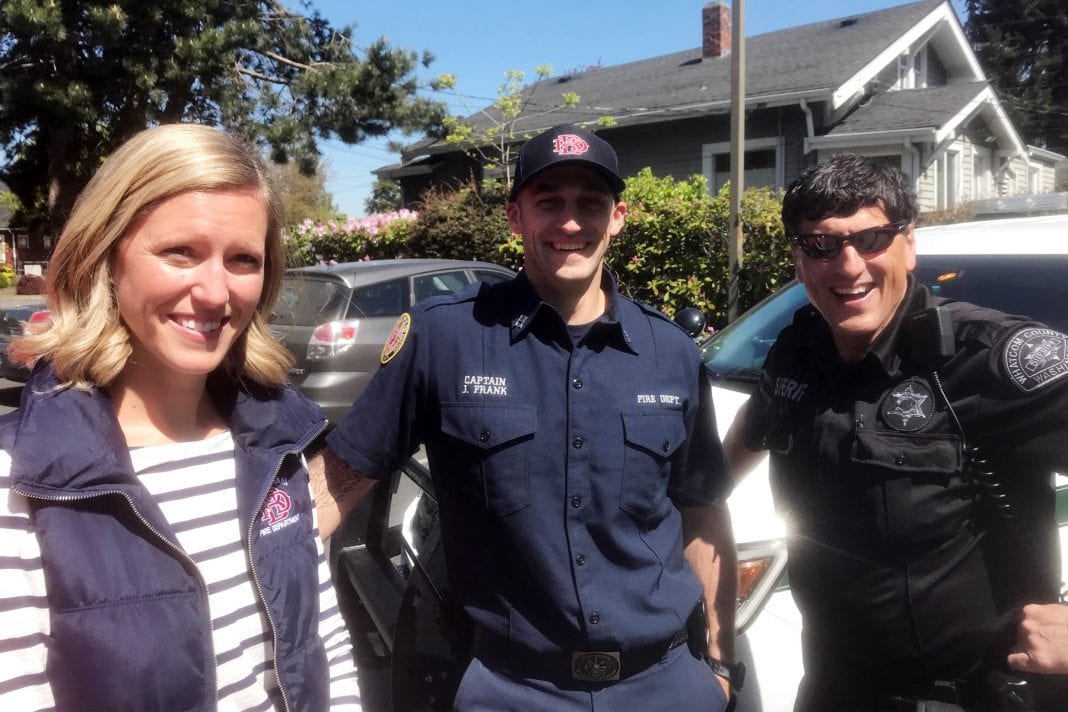Community members that don’t know who to reach out to when they need help often rely on dialing 911. And even though they are called ‘emergency services,’ hospitals and jails are usually not the most effective places to go for assistance. Whatcom County’s Ground-Level Response And Coordinated Engagement (GRACE) Program offers an alternative to calling 911, and to connect the people in need to the people offering services.
GRACE Program Manager Malora Christensen moved to Whatcom County with her wife 15 years ago, and has been invested in serving community needs ever since. “I am a clinical social worker, and before GRACE I was the Associate Director of Housing for Whatcom County at Catholic Community Services for four years, where I opened and managed Francis Place until 2019,” she says. “I’ve also worked supporting farm workers’ rights and food justice issues in Whatcom County.”
The seeds of the GRACE program were sewn in 2013, before Christensen came on board, when the Bellingham Fire Department started their Community Paramedic program. The now-defunct Whatcom Alliance for Health Advancement assigned Intensive Case Managers to work with the Community Paramedic, and their pilot project quickly compiled a list of the same people using emergency services over and over again. Unfortunately, those services were being used in an ineffective way that didn’t get to their root of an individual’s problems.

GRACE was mobilized in the fall of 2018 to connect people to the services they really needed, and to free up emergency responders for true emergencies. Many seniors don’t have natural support systems, for instance, and will call 911 for basic things. “A lot of our GRACE members are experiencing homelessness, or might be struggling with substance abuse or untreated behavioral health problems,” Christensen says. “We can figure out that this person maybe has dementia, that they need caregivers, or that we need to reconnect them with family.”
When people are referred to GRACE—usually by the ambulance crews, law enforcement, hospital workers or legal system staff—case managers can step in with resources. “We work hard to connect them to the most appropriate services. We work with them on housing, or on their income,” she says. “We also see people who are very ill, so it’s not uncommon for us to be involved in getting hospice or helping with end-of-life planning. It really runs a spectrum.”
A broad set of challenges requires a broad set of solutions, so GRACE partners with PeaceHealth, Opportunity Council and their Homeless Outreach Team, Lighthouse Mission, Lake Whatcom Treatment Center, Compass Health, Unity Care NW, and Sea Mar, and is funded by the Whatcom County Health Department, the City of Bellingham, and Peace Health.

That’s a long list of groups to navigate, and each one is busy focusing on its specialty. So if a person is facing challenges, finding their way can feel impossible. “Oftentimes these folks might be in crisis, but the systems are often so busy that higher-level care coordination can be hard to do if you don’t have an entity to coordinate that,” says Christensen. “The GRACE team is based on a ‘hub and spoke’ model, where we’re functioning as the hub to collect information and coordinate care across agencies and across disciplines in a new way.”
In the interest of coordination and communication, GRACE also works closely with first responders.
In Bellingham, GRACE has staff embedded with the Fire Department’s Community Paramedic and also work with the highest users of Emergency Medical Services and the hospital’s Emergency Department. “We also have an intensive case manager partnered with the Police Department’s Behavioral Health Officer, Officer Serad, and their caseload includes the highest utilizers of the police and the corrections system,” Christensen says. “In the County, we have partnerships with all of the different fire districts, where our intensive case managers are partnered with a community paramedic, and also work closely with the two Sheriff’s Department’s Behavioral Health Deputies.”
The final piece of the team is a nurse practitioner who works in the field, not out of a clinic. She does home visits, or meets people wherever there are. “She knows most of the people that are living in the emergency shelter, and has regular hours at both of the permanent supported housing programs in Bellingham, Christensen says. “She shows up in her cargo pants and curly hair, meets them on the street, and they develop a relationship.”

“We are already an exceptional community, but where could we grow? Our clients that live in permanent supportive housing or are experiencing homelessness don’t feel like they’re part of the larger community in the same way that I might,” Christensen says. “I had a client I was trying to convince to go to the Elizabeth Park concert series. I said, ‘It’s free, you can ride your bike there, and can bring a blanket and just listen.’ And he said, ‘Things like that just aren’t for people like me—they’re for people like you.’”
Christensen and the rest of the team are working hard to change that narrative. We face a lot of problems, but there are people working to solve them. The GRACE program has found its place, bringing all of the players into the same conversation and enabling new solutions.
“I always wonder what it would it look like if, as a community, we were really able to engage and accept and support people that are struggling, and have different challenges from us,” Christensen says. “What would that look like?”











































